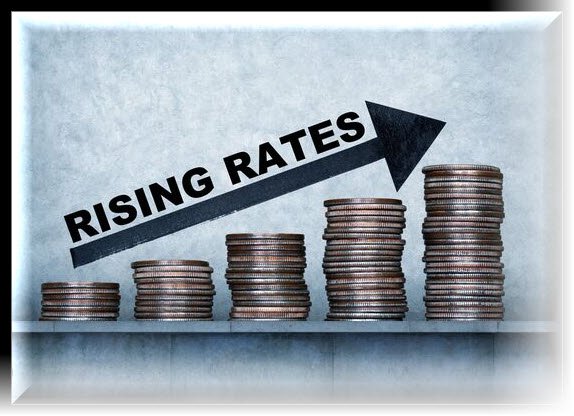“Biden’s Financial Priorities Questioned: Americans Ask, ‘What About Us?'”
Many Americans feel like they are being taken advantage of by credit card companies and the government. They are tired of being told one thing – that they should be responsible with their finances – while the reality is something completely different. The government preaches financial responsibility, yet fails to regulate the predatory practices of credit card companies.

In recent months, there has been much debate surrounding the amount of money that President Joe Biden has sent to foreign countries. Many Americans are questioning why the administration is providing financial aid to other nations when there are pressing issues at home that need to be addressed. With the ongoing pandemic, economic struggles, and infrastructure challenges, some are wondering why the focus isn’t on helping the American people first.
The lack of government intervention in regulating interest rates on credit cards has led to a sense of helplessness among Americans. They feel like they are at the mercy of these financial institutions, with no way out of their debt. This feeling of powerlessness is fueling discontent and frustration among the population.
Despite the growing anger towards credit card companies and the government, many Americans are taking steps to try and alleviate their debt. Some are consolidating their debt into lower-interest loans, while others are cutting back on expenses to free up more money for payments. However, these solutions are not always feasible for everyone, especially those who are already living paycheck to paycheck.
In the face of this mounting crisis, many Americans are calling for action. They want the government to step in and regulate credit card interest rates, to prevent financial institutions from taking advantage of consumers. They are tired of being told to be responsible with their money, while the cost of borrowing continues to skyrocket.

It’s no secret that the United States has a long history of providing aid to foreign countries. Whether it’s through humanitarian efforts, military assistance, or economic support, the US has always been a prominent player in global affairs. However, the question remains: how much money has Joe Biden sent to foreign lands, and why aren’t American citizens seeing the same level of financial support?
To put things into perspective, the Biden administration recently proposed a budget of $64 billion in foreign aid for the fiscal year 2022. This includes funding for a wide range of programs, such as humanitarian assistance, economic development, and security assistance. While some argue that this level of funding is necessary to maintain global stability and security, others believe that it’s time to prioritize the needs of the American people.
One of the main arguments against sending aid to foreign countries is that the money could be better spent at home. With millions of Americans struggling to make ends meet, access affordable healthcare, and afford basic necessities, it’s understandable why many are questioning the government’s priorities. Some argue that the current economic climate calls for a more inward focus, with resources being directed towards rebuilding the economy, creating jobs, and supporting struggling communities.
Another point of contention is the perceived lack of accountability and oversight when it comes to foreign aid. Critics argue that the money sent overseas often ends up in the hands of corrupt governments or organizations, rather than benefiting the intended recipients. With concerns about transparency and effectiveness, some are calling for a reassessment of how foreign aid is distributed and monitored.

It’s also worth noting that the COVID-19 pandemic has exacerbated existing inequalities and challenges, both domestically and internationally. While the US has provided financial support to other countries to combat the virus, there are those who believe that more resources should be allocated towards addressing the public health crisis at home. From vaccine distribution to economic recovery, there are significant challenges that need to be addressed within the US borders.
So, why aren’t American citizens seeing the same level of financial support as foreign countries? The answer to this question is complex and multifaceted. While there are valid reasons for providing aid to other nations, it’s clear that there are pressing issues that need to be addressed within the US. As the debate continues, it’s essential for policymakers and citizens alike to consider the implications of foreign aid and how it aligns with the needs of the American people.
In conclusion, the debate surrounding the amount of money that Joe Biden has sent to foreign lands raises important questions about priorities and resource allocation. While there are valid arguments for providing aid to other countries, it’s essential to consider the needs of the American people and ensure that resources are being directed towards addressing pressing challenges at home. As the discussion evolves, it’s crucial for policymakers to weigh the benefits and drawbacks of foreign aid and find a balanced approach that serves both global and domestic interests.

Americans in Credit Card Debt: A Call for Change
In recent years, interest rates on credit cards have been skyrocketing, leaving many Americans drowning in debt. With interest rates out of control, the average American is struggling to keep up with their payments and make ends meet. According to recent studies, the average American household carries over $6,000 in credit card debt, with an average interest rate of 16%.
This burden of debt has led many Americans to take a stand and demand change. They are tired of being taken advantage of by credit card companies who continue to raise interest rates, making it nearly impossible for them to pay off their debts. With the cost of living on the rise and wages stagnating, Americans are feeling the squeeze more than ever.
But while Americans struggle to make ends meet, one question lingers in the minds of many: how much money has President Joe Biden sent to foreign lands, and why do they not send any money back to the American people? After all, it is their hard-earned money that is being sent abroad. Perhaps it is time for Americans to say enough is enough and demand that their money be put to good use here at home.
The issue of foreign aid is a contentious one, with some arguing that it is necessary to help those less fortunate in other countries. However, with Americans facing record levels of debt and financial insecurity, many are questioning why their tax dollars are being sent overseas while they struggle to make ends meet.
According to the Congressional Budget Office, the United States spends billions of dollars each year on foreign aid, with some estimates putting the figure at over $40 billion annually. While some of this money goes towards important humanitarian efforts, such as disaster relief and healthcare programs, much of it is funneled to corrupt governments and wasted on unnecessary projects.
In contrast, the American people are left to fend for themselves, with little support from their own government. With the cost of healthcare, education, and housing continuing to rise, many Americans are finding it increasingly difficult to get ahead. It begs the question: why are we sending our hard-earned money overseas when there is so much need right here at home?
In recent years, there has been a growing movement calling for a reevaluation of our foreign aid policies. Many Americans believe that it is time to prioritize the needs of our own citizens and reinvest in our communities. With millions of Americans living in poverty and struggling to make ends meet, it is clear that our current system is not working.
One solution that has been proposed is to redirect some of the funds allocated for foreign aid towards domestic programs that benefit the American people. This could include investing in healthcare, education, infrastructure, and other critical services that are essential for the well-being of our communities.
President Biden has made promises to address the needs of the American people, but actions speak louder than words. It is time for the President and Congress to prioritize the needs of the American people and ensure that their tax dollars are being used effectively and efficiently.
In conclusion, Americans are fed up with the cycle of debt and financial insecurity that they find themselves trapped in. With interest rates on credit cards reaching unsustainable levels and billions of dollars being sent overseas in foreign aid, it is time for a change. The American people deserve better, and it is up to our elected officials to listen to their voices and take action. It is time to put the needs of the American people first and say no to giving our money away to foreign lands.
The lack of government intervention in regulating interest rates on credit cards has become a pressing issue for many Americans. With interest rates reaching exorbitant levels, consumers feel trapped in a never-ending cycle of debt, struggling to make ends meet while financial institutions reap the benefits.
This feeling of helplessness has fueled discontent and frustration among the population. Many Americans believe that they are at the mercy of credit card companies, with no way out of their mounting debt. Despite efforts to consolidate debt or cut back on expenses, the burden of high interest rates remains a constant source of stress for many individuals and families.
The growing anger towards credit card companies and the government has prompted calls for action. Consumers are demanding more oversight and regulation to prevent financial institutions from exploiting their customers. They want to see interest rates capped to ensure fair and equitable lending practices, and to protect vulnerable individuals from falling deeper into debt.
In the midst of this financial crisis, many Americans are taking matters into their own hands. Some are seeking out lower-interest loans to consolidate their debt, while others are tightening their belts and cutting back on unnecessary expenses to free up more money for payments. However, these solutions are not always viable for everyone, particularly those who are already struggling to make ends meet.
As the situation continues to worsen, the call for government intervention grows louder. Consumers are tired of being told to be responsible with their money, while the cost of borrowing continues to rise unchecked. They want to see concrete action taken to address the root causes of the problem and to ensure that all Americans have access to fair and affordable credit options.
In conclusion, the lack of government regulation on credit card interest rates has created a sense of helplessness and frustration among many Americans. While some are taking steps to alleviate their debt, the burden of high interest rates remains a significant challenge for individuals and families across the country. It is time for the government to listen to the calls for action and to step in to protect consumers from the predatory practices of financial institutions. Only then can we begin to address the root causes of the problem and create a more equitable and just financial system for all.
Elite Screens Sable Frame B2 135-INCH Projector Screen Diagonal 16:9 Diag Active 3D 4K 8K Ultra HD Ready Fixed Frame Home Movie Theater Black Projection Screen with Kit, SB135WH2, CineWhite UHD-B

Throughout his career, Roy Swire has remained true to his roots, using his artistry to inspire and uplift others. Whether through his music, writing, or activism, he continues to make a meaningful impact on the world, proving that art has the power to transcend boundaries and unite people from all walks of life.
Related News

Teen Killer Realizes Cops Found the Secret Recording.
Spread the loveIn a shocking turn of events, a teenage murderer was recently caught offRead More

Another Actor Just Got ARRESTED, Now Hollywood is FREAKING OUT!
Spread the loveAnother Actor Just Got ARRESTED, Now Hollywood is FREAKING OUT! In a shockingRead More
